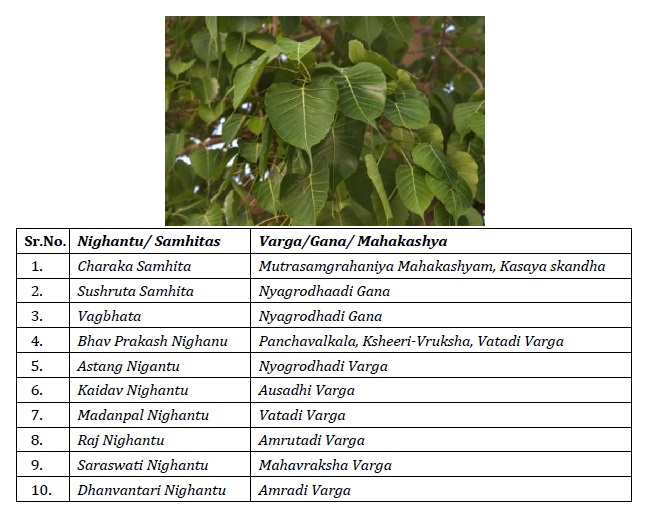A Critical Review on Ashvattha Leaves (Ficus Religiosa Linn.): An Ayurvedic Perspective and Current Practice
Abstract
Ficus religiosa is large deciduous tree also known as the Bodhi vraksha, often planted near temples or religious places. In Indian subcontinent it is also said that this is the mythical 'World Tree' or the 'Tree of Life'. Through the ancient times it is widely being used to treatment of various diseases like constipation, dysentery, skin diseases, heart diseases, snakebite. But this knowledge still scattered and unelaborated. Various pharmacological studies have been done to explore the chemical constitution of different parts of Ashvattha. They found campestrol, stigmasterol, isofucosterol, α-amyrin, lupeol and different kind of Amino acids etc especially in leaf. various Ayurvedic texts describe about Ashvattha with their aspect. Ashvattha kept in Ayurvedic classics in different Ganas/ Mahakashyas /Vargas like Kaidav Nighantu kept in Ausadhi Varga Madanpal Nighantu-Vatadi Varga, Raj Nighantu- Amrutadi Varga etc. Numbers of Ayurvedic studies are available to explore different properties of Ashvattha. It has Guru, Ruksha, Seet, Kashya properties, Sita, Pitta-Kaphahara, Vranaropak property. It is also important constituent of various Ayurvedic preparations like Shankha Vati, Chandraprabha Vati, Kaminivindravan Rasa. Recent research also shows Hypoglycemic activity, Hypolipidemic activity, anti-microbial and anti-viral activities, wound healing activity, anti- oxidant, anti-convulsant activity, immunomodulatory activity, anti-ulcer activity, anti-cancer activity, anti-inflammatory and analgesic activities, anti-asthmatic activity, anti-acetylcholinestrase activity. These details are available in scattered way in different places. In this review article maximum possible information reviewed and collectively presented in concise form. This may be helps full to explore the holistic approach of the Ashvattha.
Downloads

Copyright (c) 2021 International Journal of Ayurveda and Pharma Research

This work is licensed under a Creative Commons Attribution-NonCommercial-ShareAlike 4.0 International License.






